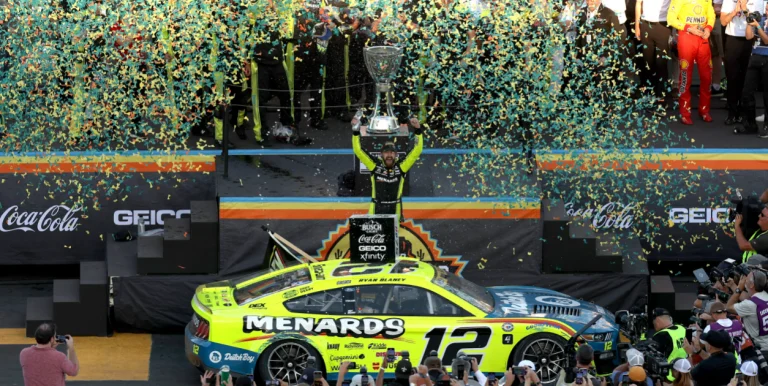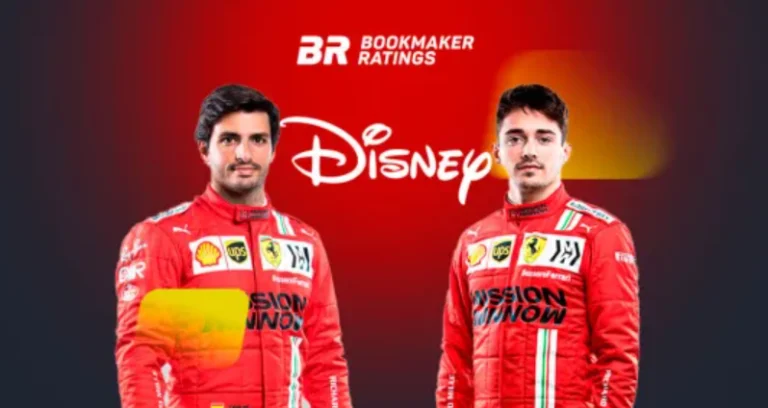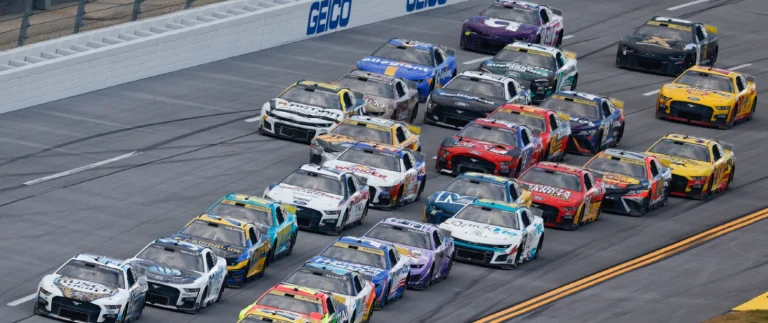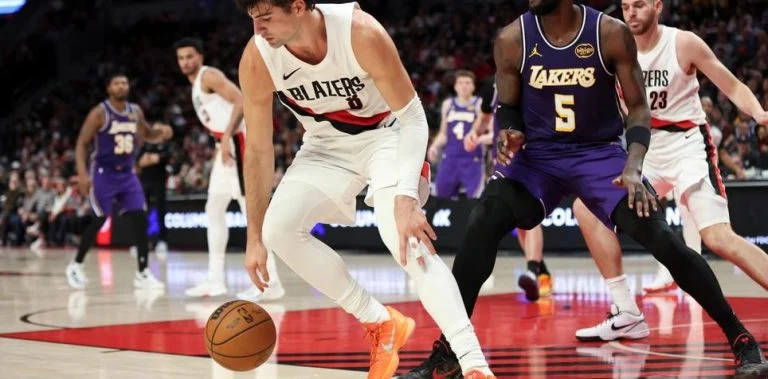How to Bet on Golf
Wagering on professional tournaments has become one of the most strategic forms of sports speculation in the USA, from major championships to weekly PGA Tour events. This comprehensive guide will walk you through everything you need to know about how to bet on golf, from understanding basic terminology to implementing advanced strategies that can give you an edge over the bookmakers.
Why golf is a popular sport to bet on in the USA
Professional tournaments attract American players with year-round action across multiple tours and detailed statistical data for informed decisions. Unlike team sports, individual competitions provide matchups that allow leveraging player performance metrics for strategic advantages.
Since legalization in multiple states, Americans can legally wager on everything from the Masters to weekly events. The sport’s predictable schedule and wealth of data make it ideal for both casual and serious handicappers. The PGA Tour alone hosts approximately 45-50 events annually, creating consistent opportunities for bettors to analyze player form, course conditions, and historical performance data that directly translate into betting edges.
⛳ Golf betting expansion: US golf betting volumes have increased by 250% since 2019, with major championships generating $200-400 million in betting handle across regulated markets. The Masters alone accounts for approximately $150 million in wagers, making it one of the most bet-upon sporting events outside of football and basketball. The sport’s four-day format and statistical transparency provide unmatched analytical opportunities for serious bettors.
The peculiarities of tournament betting
Tournament wagering features 120-156 player fields competing over four days, creating complex markets with varying prices. Even the best players face steep odds, typically +800 to +1500, while tournament outcome analysis requires understanding cut lines and weather impacts.
The Thursday-Friday cut (usually top 65 plus ties) creates live wagering opportunities as narratives unfold. This multi-day format allows strategic wagering as leaders emerge and fade. Tournament betting differs fundamentally from traditional sports wagering because no single player is expected to win—even the top favorite wins only 10-12% of the time, creating a more level playing field where value can be found across the entire odds spectrum.
💡 Tournament dynamics: The cut line typically falls around even par or +1 over par, meaning approximately 45% of the field is eliminated after two rounds. This creates strategic opportunities for “making the cut” bets at favorable odds. Professional bettors often target borderline players priced at +120 to +150 whose recent form suggests better-than-implied chances of surviving to the weekend.
Legal betting in the USA
Sports wagering is regulated in over 30 states following the 2018 Supreme Court decision. Legal operators must verify identities, maintain responsible gambling protocols, and guarantee payouts through state oversight.
Always verify proper state licensing before depositing. Legal frameworks ensure fund protection and dispute resolution unavailable with offshore operators.

Understanding golf betting basics
 Before implementing strategies, grasp fundamental concepts for how to bet on golf successfully. The individual nature and tournament format create unique opportunities distinct from team sports.
Before implementing strategies, grasp fundamental concepts for how to bet on golf successfully. The individual nature and tournament format create unique opportunities distinct from team sports.
Wagering centers on tournament outcomes, player performances, and head-to-head matchups. Major events offer odds on 50+ players with derivative markets like top-5 finishes and first-round leaders. The complexity of golf betting markets allows for sophisticated portfolio approaches where bettors can balance high-risk outright winner bets with lower-variance propositions like matchups and top-finish positions.
Key betting terms you must know
Sports wagering encompasses all athletic speculation, with professional tournaments offering statistically-rich options. A bet or wager is the amount risked on an outcome. The sportsbook or bookmaker (also called bookie) accepts bets and sets lines.
Odds represent outcome probability and determine potential payout, expressed in American format (+150, -110). The line is current pricing offered, while your stake is the amount risked. Payout includes original stake plus profit—a $100 stake at +200 returns $300 total.
⛳ Essential golf betting terminology
Each-way bet
Split wager covering both win and place (typically top-5), with place portion paying at 1/4 or 1/5 of win odds. Popular for long-shot value.
Dead heat rules
When players tie for position, stakes are divided by number of tied players. A $100 bet on a player tying for 5th with two others pays as if you bet $33.33.
3-ball betting
Wager on which of three grouped players shoots lowest score in a specific round. All three must tee off for bet validity.
Tournament matchup
Head-to-head bet on which player finishes higher over 72 holes. If both miss cut, lowest two-round score wins.
How golf betting differs from other sports
Large tournament fields mean you wager against the house rather than other players. The four-day format enables strategic in-play wagering as conditions change.
💡 Expert tip: The individual nature requires evaluating personal form and statistical trends rather than team dynamics, making it ideal for data-driven analysis.
Stroke average tracking, fairway accuracy, and putting efficiency provide quantifiable edges. Weather impacts professional tournaments more dramatically than most sports, creating additional analytical variables. Wind shifts of just 5-10 mph can transform scoring conditions from birdie-fest to survival mode, presenting live betting opportunities when the market hasn’t fully adjusted to changing conditions.
📊 Statistical advantage: Golf provides over 200 trackable statistics per player through Strokes Gained analysis, fairway percentages, proximity to hole measurements, and putting metrics. This data density far exceeds team sports where individual contributions are harder to isolate. Professional golf bettors typically analyze 15-25 key metrics before placing outright winner bets, compared to 5-8 factors in most team sport analysis.
How to bet on sports in the USA
Placing legal sports bets in the USA has become straightforward since widespread legalization, but navigating the process requires understanding state-specific regulations and choosing reputable operators. This section guides you through the legal framework, deposit methods, and sportsbook selection process for tournament wagering specifically.
Legal golf betting in the USA
Tournament wagering is legal in all states with authorized sports speculation, including online platforms and retail locations. Legal operators obtain state licenses and comply with strict standards for fair play and security.
You must be physically in a legal state, at least 21 years old, and use licensed operators. Geolocation technology verifies compliance, ensuring consumer protections unavailable offshore. State gaming commissions conduct regular audits of licensed operators, examining everything from Random Number Generator certifications to segregated customer fund accounts, providing layers of security that offshore books cannot match.
States where betting is legal
Sports wagering operates in over 30 states, with professional tournaments included in all markets. Major states include New York, New Jersey, Pennsylvania, Illinois, Michigan, Colorado, Arizona, Virginia, Tennessee, Indiana, and many others.
Some states offer only retail wagering while others provide both retail and online. Mature markets like Nevada and New Jersey have dozens of operators competing with better odds and promotions.
🎰 Available markets: Legal states offer comprehensive tournament wagering including PGA Tour, LPGA, European Tour, majors, Ryder Cup, and international events.
🗺️ Market maturity matters: Bettors in mature markets like New Jersey and Nevada enjoy 15-25% better odds on average compared to newly launched states, due to increased operator competition. Line shopping between 3-4 sportsbooks in competitive markets can improve returns by 8-12% annually. States with 10+ licensed operators typically offer odds that are 0.5-1% closer to true probability than monopolistic or duopolistic markets.
Deposits & withdrawals
Licensed sportsbooks accept debit cards, bank transfers, PayPal, prepaid cards, and cryptocurrency. Minimum deposits typically range from $5-$10, with instant processing for immediate wagering.
Withdrawals mirror deposit options with varying processing times. E-wallets and crypto process within 24-48 hours, while bank transfers take 3-5 days.
💳 Payment methods comparison
Fast deposit methods:
Credit/Debit cards: Instant processing, but some banks block gambling transactions
PayPal & e-wallets: Instant, widely accepted, no fees at most books
Cryptocurrency: Instant, enhanced bonuses, complete privacy
Bank transfer: 1-3 days, higher limits for large deposits
Fast withdrawal methods:
Cryptocurrency: 24-48 hours, minimal fees ($2-5 network cost)
PayPal: 24-48 hours, reliable and secure
Play+ card: 24-48 hours, can use at ATMs
Bank transfer: 3-5 days, best for large withdrawals ($10,000+)
Choosing a trusted golf sportsbook
Select operators with valid state licenses, competitive odds, comprehensive markets, and responsive support. Check reviews to gauge reliability and payout history.
Evaluate market breadth, pricing quality, live wagering options, mobile functionality, and promotions. Top books provide extensive PGA Tour predictions and early tournament odds. Professional bettors prioritize sportsbooks that post early lines 5-7 days before tournament start, allowing capture of value before public betting pressure moves the market.
💡 Selection Checklist:
- Valid state gaming license
- Competitive tournament odds
- Comprehensive betting markets
- User-friendly mobile platform
- Multiple payment options
- Responsive customer support
Overview of all types of bets and their features
Professional tournaments offer diverse wagering markets that cater to different risk tolerances and strategic approaches. Understanding each wager type’s mechanics and optimal use cases will help you build a well-rounded speculation portfolio. Below is a comprehensive breakdown of the most common wagering options available in US markets.
| Bet type | Description | Typical odds | Risk level |
|---|---|---|---|
| Outright winner | Pick tournament champion | +800 to +10000 | High |
| Top 5/10/20 finish | Player finishes in range | +150 to +500 | Medium |
| Head-to-head matchup | One player beats another | -110 to -130 | Low-medium |
| Each-way bet | Win + place component | Varies | Medium |
| First round leader | Leads after Round 1 | +1500 to +5000 | High |
| Making/missing cut | Makes weekend cut | -200 to +150 | Low |
| 3-ball/2-ball | Best score in group | -110 to +120 | Low |
| Tournament matchup | Finishes higher over 72 holes | -120 to +100 | Medium |
⛳ Portfolio approach: Professional golf bettors typically allocate 30-40% of their tournament bankroll to outright winners, 30-40% to top-finish markets (top-5, top-10, top-20), and 20-30% to matchups and 3-balls. This diversification strategy smooths variance while maintaining exposure to high-return opportunities. A balanced portfolio might include 2-3 outright bets at +2500 to +6000, 3-4 top-10 positions at +200 to +400, and 4-6 matchups near even money.
Popular golf betting markets in the USA
Outright winner bets dominate major championships, with favorites typically +900 to +1500. Top-finish markets provide frequent returns, while head-to-head comparisons near even money attract regular action seekers.
PGA Tour predictions drive weekly wagering volume. The US Open features tight margins on favorites, while longshot prices exceed +50000. Odds to win memorial golf tournament and other specific events offer diverse opportunities.
Making the cut ranges from -200 for favorites to +150 for borderline players, allowing strategic hedging through two rounds. This market is particularly valuable for bettors who can accurately predict cut line movement based on weather forecasts and early-round scoring conditions.
Exotic bets
Beyond standard markets, tournaments offer creative wagers adding portfolio variety. Nationality of winner bets group regional players at attractive prices. Winning margin predicts stroke separation between champion and runner-up.
Hole-in-one props for par-3s typically price around +150 to +200. First-round leader bets offer longshot opportunities with mid-tier players at +2000 or higher. These markets often feature softer lines because sportsbooks devote less analytical resources to exotic propositions compared to main markets.
🎰 Creative Exotic Markets:
- Group betting (best European player)
- Playoff occurrence (Yes/No)
- Wire-to-wire winner
- Lowest opening round
- Nationality of winner
- Course record broken
Guide to analyzing statistics before placing a bet
Successful tournament wagering demands rigorous statistical analysis rather than casual observation. Professional golf wagering experts leverage comprehensive data to identify value opportunities that casual bettors overlook. This section outlines the analytical framework necessary for informed wagering decisions.
Key golf stats to track
Strokes Gained metrics (Tee-to-Green, Approach, Around-the-Green, Putting) are the gold standard, measuring performance relative to fields. Stroke average tracking reveals scoring trends, with recent form spanning 12-24 rounds.
Fairway accuracy percentages (65-70% for elite players) indicate driving precision critical on tight courses. Putting efficiency measured by putts-per-round often determines outcomes. Advanced bettors dive deeper into proximity to hole from various distances, scrambling percentage from specific lie types, and three-putt avoidance rates which correlate strongly with top-10 finishes.
💡 Critical Stats:
- Strokes Gained: Total
- Greens in Regulation %
- Scrambling %
- Driving distance
- Birdie average
- Bogey avoidance
- Recent form (last 12 rounds)
Head-to-head data & past performance
Historical head-to-head comparisons provide matchup context, as some players consistently outperform opponents. Past tournament trends at specific venues offer predictive value through proven course-fit ability.
Weight recent venue performance heavily. Players averaging below tournament par historically possess significant advantages over those above par, regardless of current rankings. Course history from 3-5 years provides optimal sample size—recent enough to reflect current playing style but large enough to minimize small-sample noise.
📈 Course history value: Players with 5+ tournament starts at the same venue and averaging under par demonstrate 22-28% higher top-10 finish rates compared to first-time participants, even when controlling for world ranking. This “course knowledge” advantage is most pronounced at complex venues with undulating greens and strategic hazard placement. Target players with strong venue history priced at +2500 to +5000 for outright value and -110 to +120 in tournament matchups against higher-ranked opponents lacking course familiarity.
Importance of course type & conditions
Course layout impact dramatically influences performance. Long courses favor bombers with elite ball-striking, while short layouts reward precision and putting. Links courses require specific wind management skills.
Weather conditions add analytical layers. Wind affects longer hitters less, while rain softens courses. Temperature impacts distance, adding 2-3 yards per 10-degree increase. Morning-afternoon wave splits create significant advantages or disadvantages depending on when weather fronts move through—afternoon players facing 15 mph winds when morning wave had calm conditions essentially play a different tournament.
⛳ Course Setup Considerations
- Par-72 vs. Par-70/71
- Total yardage (7,000-7,600+ yards)
- Rough thickness
- Green speeds
- Water hazards
- Par-5 reachability
Using analytics & betting tools
Modern bettors leverage Data Golf, Fantasy National, and tour analytics for advanced metrics. These platforms provide expected performance models and course fit algorithms useful for fantasy golf that translate to betting.
Odds comparison tools identify best available prices across sportsbooks. Finding better odds compounds significantly over multiple bets, improving long-term profitability. A bettor placing 100 bets annually who consistently finds 5% better odds through line shopping generates approximately $500-800 additional profit on a $10,000 annual handle compared to using a single book.
🔧 Essential betting tools: Data Golf provides Strokes Gained predictions and field strength analysis. Fantasy National offers daily fantasy projections translating to betting value. Ultimate Tennis Statistics-style tour databases track historical performance. Odds comparison sites like Oddschecker consolidate lines across 20+ sportsbooks. Professional bettors invest $50-200 monthly in premium analytics, viewing it as essential business expense that typically returns 3-5x in improved betting performance.
Mistakes to avoid when betting on sports in the USA (golf focus)
Even experienced bettors fall into predictable traps that undermine profitability. Recognizing and avoiding these common mistakes will improve your long-term results significantly. Learning how to bet on golf successfully requires disciplined decision-making and objective analysis.
Betting only on favorites
Consistently backing favorites is costly despite their win rates. Players at +1000 must win over 9.1% of tournaments for profitability, a threshold most don’t meet.
Fantasy tournament participants overvalue name recognition. Mid-tier players at +3000 to +8000 often provide superior value with proper course matches. The market inefficiently prices celebrity players, with casual bettors driving favorites’ odds below fair value while overlooking skilled mid-tier professionals with optimal course fits.
❌ Favorite Betting Pitfalls:
- Odds don’t justify probability
- Inflated by public pressure
- Limited upside
- Better mid-range value
- Favorites win only 10-15%
Ignoring course conditions
Weather and setup dramatically impact performance, yet bettors often ignore forecasts. Wind, rain, and temperature create value opportunities on overlooked players.
Bombers gain advantages in calm, soft conditions. Windy, firm-fast setups favor precision players. Understanding these dynamics is crucial. A 10-15 mph wind forecast should shift your player evaluation significantly—long but erratic drivers lose their advantage while accurate, strategic players gain edge.
🌦️ Weather Impact Factors:
- Wind direction and speed
- Precipitation timing
- Temperature extremes
- Humidity levels
- Course setup changes
Emotional betting on favorite players
Personal fandom clouds judgment, causing overestimation of favorite players’ chances. Wagering should be based on statistical analysis and value, not emotional attachment.
Even elite players have unsuitable courses and setups. Recognizing when favorites are poorly positioned requires discipline but protects bankrolls. Tiger Woods at Augusta creates emotional betting that historically drove his odds 15-20% below fair value, while other majors where his dominance was less pronounced offered better value.
💡 Emotional Betting Red Flags:
- Backing same players every tournament
- Justifying bad odds hopefully
- Ignoring poor course history
- Chasing previous losses
- Defending bets on past success
Poor bankroll management
Poor bankroll discipline destroys more careers than bad handicapping. Staking too much, chasing losses, or depleting funds eliminates long-term value capture.
Allocate dedicated wagering funds separate from living expenses. Establish unit sizes (1-5% per bet) and adjust based on confidence. Professional golf bettors typically operate on 1-2% standard units with 3-4% reserved for highest-confidence plays, never exceeding 5% on any single wager regardless of perceived edge.
💸 Bankroll Management Rules
- Standard bet: 1-2% of bankroll
- Confident play: 3-4%
- Maximum: Never exceed 5%
- Track all bets
- Adjust as bankroll changes
- Set loss limits
- Never chase losses
Misunderstanding each-way bets
Each-way wagers consist of two equal parts: win and place (typically top-5). This provides insurance but requires understanding payout rules affecting profitability.
The place portion pays 1/4 or 1/5 of win odds. For example, when evaluating US Open odds to win, a player at +4000 with 1/5 place terms pays +800 for fifth place. Remember you’re risking double your stake (one unit win, one unit place).
Many assume each-way bets are always superior, but this depends on win probability versus place likelihood. Each-way makes sense for longshots at +4000 or higher where top-5 probability significantly exceeds win probability, but offers poor value on favorites at +1200 where you’re essentially paying double stake for modest place insurance.
Advanced strategies for golf betting success
 Once you’ve mastered fundamentals, implementing sophisticated strategies separates profitable bettors from the break-even crowd. These advanced approaches require discipline, analytical rigor, and patience, but can significantly improve long-term returns when properly executed.
Once you’ve mastered fundamentals, implementing sophisticated strategies separates profitable bettors from the break-even crowd. These advanced approaches require discipline, analytical rigor, and patience, but can significantly improve long-term returns when properly executed.
Bankroll management techniques
Advanced management includes diversification across bet types and Kelly Criterion sizing. Divide bankrolls into segments: outright winners (smaller stakes), top-finish markets (medium stakes), matchups (larger stakes).
This diversification smooths variance and ensures weathering cold streaks. The Kelly Criterion calculates optimal bet sizing as: f = (bp – q) / b, where b is odds received, p is win probability, and q is loss probability (1-p). Most professionals use fractional Kelly (25-50% of calculated amount) to reduce volatility while maintaining mathematical edge.
💡 Advanced Strategies:
- Kelly Criterion for optimal sizing
- Diversify across market types
- Reserve 50% for live betting
- Track each category separately
- Monthly reviews
- Scale up gradually
Value betting in golf
Value wagering identifies prices not reflecting true probabilities. When a player at +4000 has genuine 3% probability (implied +3233), you’ve found positive expected value.
Develop probability models using historical data and course fit for comparison against sportsbook odds. For instance, analyzing US Open golf odds across operators reveals pricing inefficiencies worth exploiting. Shop multiple books—getting +5000 instead of +4500 increases expected return by 11%. Over 100 bets, this line shopping differential generates $1,000+ additional profit on a $10,000 total handle.
🎯 Value identification process: Build a probability model incorporating course history, recent form, Strokes Gained data, and weather forecasts. Compare your implied probabilities to sportsbook odds across 5-8 operators. Target situations where your model shows 4-6% higher probability than odds imply. For example, if your analysis suggests a player has 8% win probability (+1150 fair value) but sportsbooks offer +1600, this represents significant positive expected value worth 1-2 unit wagers.
Combining live bets with pre-match analysis
Live wagering creates opportunities capitalizing on market overreactions. A favorite who shoots 68 in Round 1 but trails by five may see odds lengthen attractively despite strong positioning.
Establish pre-tournament views, then compare live odds against assessments. When markets overreact to single-round variance, value emerges. A player starting final round three shots back at +800 might represent tremendous value if your pre-tournament analysis suggested +500 fair odds and nothing in their play suggests deteriorating form.
🎰 Live Betting Opportunities
- Fade leaders after hot rounds
- Back strong ball-strikers who putted poorly
- Exploit overreactions to bad holes
- Target players 3-5 back starting weekends
- Hedge pre-tournament positions
- Bet against swing issues
Leveraging crypto bonuses for golf betting
Crypto-friendly sportsbooks offer unique bonuses enhancing returns. Deposit bonuses, reload offers, and cashback provide additional value with more generous terms than fiat operators.
Crypto transactions process faster (hours vs. days), allowing quick fund movement to capture best odds or promotions. Some crypto-exclusive books offer 100-200% deposit bonuses compared to 50-100% at traditional sportsbooks, effectively doubling your starting bankroll when used strategically with appropriate rollover management.
✅ Crypto Betting Advantages:
- Higher deposit bonuses (100-200%)
- Faster withdrawals (24-48 hours)
- Lower transaction fees
- Enhanced privacy
- Exclusive promotions
- Better odds at crypto books
Best sportsbooks and apps for golf betting in the USA
Selecting the right sportsbook impacts experience and profitability. Top operators combine competitive odds, comprehensive markets, and strong customer service.
BetWhale provides extensive tournament coverage including PGA Tour, LPGA odds, European Tour, and international championships. Early odds posting allows sharp bettors to capitalize before adjustments. Live action enables in-tournament speculation with real-time updates. The platform’s strength lies in offering odds 5-7 days before tournaments start, capturing value before public betting pressure moves lines.
The mobile app delivers seamless experiences with intuitive navigation and quick placement. Multiple payment methods include traditional banking and cryptocurrency with efficient processing. Customer support responds within 2-3 minutes via live chat for urgent issues, with comprehensive FAQ covering 90% of common questions.
✅ BetWhale Golf Features
- Comprehensive tournament coverage
- Competitive early-posted odds
- Extensive prop markets
- Live betting with real-time updates
- User-friendly mobile app
- Crypto-friendly options
- Regular promotions
- Responsive support
Serious bettors maintain multiple accounts for line shopping. Golf picks across operators maximize returns on tournament wagers. Having accounts at 4-6 sportsbooks allows capturing best available odds on every bet, which compounds to 8-15% improved returns annually compared to using a single book.
Responsible golf betting
Responsible gambling practices protect financial wellbeing and ensure long-term enjoyment. Establish clear boundaries and recognize problem gambling warning signs.
Set strict budget limits before wagering sessions, allocating only discretionary funds. Treat bankrolls as entertainment spending, not investment capital. Never borrow to fund accounts or chase losses. The moment you consider betting money allocated for rent, groceries, or bills, you’ve crossed into problematic gambling territory requiring immediate intervention.
Recognize losses are inevitable. Professional bettors win approximately 53-55% over large samples, meaning extended losing streaks occur regularly. A 53% win rate still experiences 10+ consecutive losses approximately once every 1,000 bets due to normal variance—this doesn’t indicate a flawed strategy.
💡 Responsible Guidelines:
- Bet only discretionary income
- Maintain strict limits
- Never chase losses
- Take regular breaks
- Track time and money
- Avoid emotional betting
- Use self-exclusion tools if needed
US sportsbooks provide deposit limits, time limits, and self-exclusion options. If gambling becomes problematic, contact the National Council on Problem Gaming (1-800-522-4700). Most states also operate regional problem gambling hotlines offering free counseling, financial planning assistance, and family support services specifically designed for gambling-related issues.
Betting and play with BetWhale – your chance to win at golf today!
BetWhale offers comprehensive markets with competitive odds on majors and weekly PGA Tour events. The platform delivers exceptional experience through intuitive navigation, rapid placement, and real-time updates.
New users receive generous welcome bonuses, while regular bettors benefit from odds boosts, risk-free bets, and loyalty rewards. Crypto-friendly processing ensures instant deposits and 24-48 hour withdrawals. The loyalty program offers cashback ranging from 5% for casual bettors to 15% for high-volume players, effectively reducing the breakeven threshold and improving long-term profitability.
Golf picks span outright winners to exotic propositions with early odds for sharp bettors. Join BetWhale for premium tournament wagering with industry-leading prices and comprehensive coverage.
Place bets and play with BetWhale!
FAQ
What is the most common bet type in golf?
Outright winner bets dominate, with favorites priced +800 to +1500, while head-to-head matchups offer more frequent winning opportunities.
How do each-way bets work in golf?
You place two equal stakes: one for the win, one for top-5 placement at 1/4 or 1/5 odds, getting paid on both if your player wins.
Can I bet on golf legally in the USA with crypto?
Yes, licensed operators in regulated states accept cryptocurrency while maintaining full legal compliance and consumer protections.
What golf stats are most important before betting?
Strokes Gained metrics, current scoring form, and venue-specific history provide the strongest edge when combined with course fit analysis.
Which sportsbooks have the best golf odds in the USA?
BetWhale delivers competitive tournament odds consistently, but comparing lines across multiple books captures maximum value before markets adjust.









